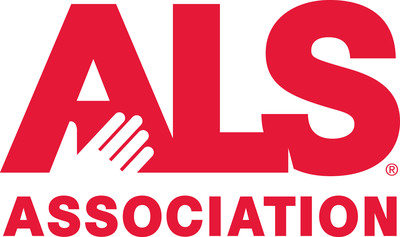The ALS Association Release: New Protein Target Emerges For C9orf72 The Most Common Genetic Form Of ALS
WASHINGTON, Aug. 12, 2016 /PRNewswire-USNewswire/ -- Targeting a single protein, called SUPT4H1, reduces the levels of the three toxic entities created by the C9orf72 gene expansion, the most common genetic cause of ALS, according to a study published in the journal Science. The finding suggests that SUPT4H1 may be a promising candidate for therapy development for people whose disease is caused by expansion of the C9orf72 gene. The study was supported by The ALS Association and led by senior investigators Leonard Petrucelli, Ph.D., of the Mayo Clinic in Jacksonville, Flaand Aaron Gitler, Ph.D., of Stanford University in Stanford, Calif., along with co-lead investigators Nicholas Kramer, Ph.D., Yari Carlomagno, Ph.D., Fen-Biao Gao, Ph.D., and Yong-Jie Zhang, Ph.D.

ALS is a progressive neurodegenerative disease that affects nerve cells in the brain and the spinal cord. Eventually, people with ALS lose the ability to initiate and control muscle movement, which leads to total paralysis and death, usually within two to five years of diagnosis. For unknown reasons, veterans are twice as likely to develop ALS as the general population. There is no cure, and only one drug approved by the U.S. Food and Drug Administration (FDA) modestly extends survival.
The C9orf72 gene expansion consists of very long repeats of a six nucleotide sequence, GGGGCC. The expansion leads to the production of two different RNA molecules (called "sense" and "antisense" transcripts) as well as a variety of unusual proteins called dipeptide repeat proteins (DPRs). Evidence suggests that both the transcripts and the DPRs contribute to toxicity, and current therapeutic approaches are being developed to reduce each of these individually.
This study examined the effects of reduction of a yeast transcription factor called Spt4 (called SUPT4H1 in humans). Transcription factors control the production of RNA from genes; in the case of Spt4, it controls elongation of long, but not short, repeated gene regions. Thus, the authors reasoned, reducing Spt4 might reduce the expression of the mutant gene with its long expanded region, without affecting the non-expanded gene (people with ALS due to the C9orf72 gene expansion also carry one normal, non-expanded gene).
They found that decreasing the amount of Spt4 in yeast reduced both sense and antisense transcripts from the expanded gene, and DPRs, without reducing transcripts from the non-expanded gene. Similar results were seen in fly and worm models of C9orf72 mutation, and treatment also improved survival. Reducing SUPT4H1 in human cells derived from ALS patients had a similar effect, with no obvious signs of toxicity.
"This study highlights a potentially important new target for therapy development," according to Lucie Bruijn, Ph.D., M.B.A., Chief Scientist for The ALS Association. "Current efforts to reduce expression of the expanded C9orf72 gene with antisense therapy will continue, and we are very excited about the prospects of this approach. At the same time, every effort must be made to develop other promising approaches, and these results suggest that targeting SUPT4H1 may offer a new and powerful route to treatment of ALS due to this gene mutation."
About The ALS Association
The ALS Association is the only national non-profit organization fighting Lou Gehrig's Disease on every front. By leading the way in global research, providing assistance for people with ALS through a nationwide network of chapters, coordinating multidisciplinary care through certified clinical care centers, and fostering government partnerships, The Association builds hope and enhances quality of life while aggressively searching for new treatments and a cure. For more information about The ALS Association, visit our website at www.alsa.org.
Logo - http://photos.prnewswire.com/prnh/20131211/MM32178LOGO
To view the original version on PR Newswire, visit:http://www.prnewswire.com/news-releases/new-protein-target-emerges-for-c9orf72-the-most-common-genetic-form-of-als-300313021.html
SOURCE The ALS Association

